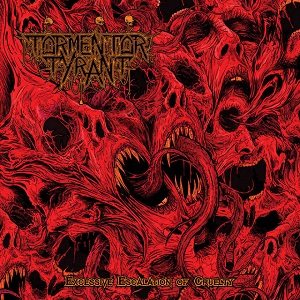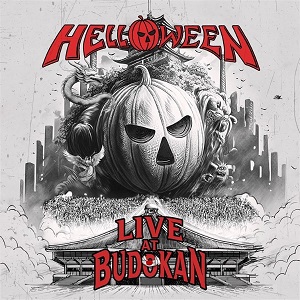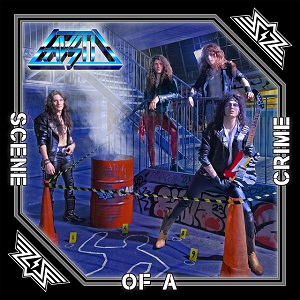IHSAHN - "The Black Metal Inner Circle Has Become A Very Special Media-Created Phenomenon”
June 11, 2012, 12 years ago
By Kelley Simms
5:30 AM CDT: My alarm clock goes off.
5:45 AM: I’m on my first cup of coffee while strumming through the Des Moines Register anticipating a call from Vegard Sverre Tveitan, better known as Ihsahn. The co-creator of EMPEROR is due to call me from his native Norway for a scheduled 6 AM. interview.
6:08 AM: My phone rings.
“Hello, this is Ihsahn.”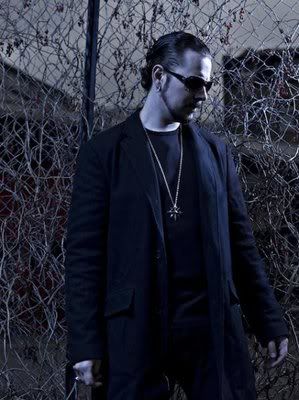
The iconic and virtuosic musician is a few minutes late, but it was expected, as he was slated for a full day of press interviews for his newest and most innovative solo album, Eremita. There’s a mystical presence and a lone wolf image associated with Ihsahn. It’s befitting of such an influential player who grew up smack dab in the middle of the burgeoning Norwegian black metal scene in the early ’90s. Black metal often gets associated with Satanism, church burnings and murder.
Ihsahn always knew he would become a professional musician, even at the age six when he first started taking piano lessons. He then graduated to the guitar at ten years old. At age 13, after seeing IRON MAIDEN, he met his musical partner Samoth (Tomas Haugen), and formed a band. After several name changes, Emperor was born in 1991. Around this time, the so-called Black Metal Inner Circle was formed. It was a term allegedly coined by MAYHEM guitarist Euronymous, who owned a record shop called Helvete in Oslo where the newest of the black metal contingents would hang out.
“I think the “inner circle” has become a very special media-created phenomenon,” chuckled Ihsahn. “It went very well with the imagery of the black metal scene. I think the scene itself adopted that early on and it gave a good atmosphere to the whole thing. I had hung around Euronymous’ shop and we drank beer and went to shows. But I think that whole thing is very exaggerated. It’s become almost like mythology for many. Personally, I’m not that nostalgic to that whole thing. As soon as the black metal thing turned into conformity, I think that triggered my opposition. My opposition to conformity is what brought me to black metal in the first place.”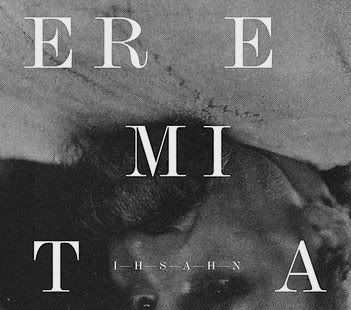
This non-conformity issue of Ihsahn’s is what also led to Emperor to cease wearing corpse paint - one of black metal’s most common traits. Ihsahn thought it was becoming too trendy and the scene was losing its original symbolism. As newcomers to this pubescent scene, Ihsahn admits that he and the others were certainly a little naive to the whole experience.
“We had absolutely no idea,” Ihsahn said. “I guess it all came from the typical death metal underground scene with tape trading and fanzines. It was that kind of network already. But then when we got connected with Euronymous’ shop and when everybody started gathering around that place, it kind of developed into more of taking direct inspiration from early BATHORY and taking things in a bigger frame of mind. At that point, there was no black metal scene. There were just those bands from the early Norwegian death metal scene who gradually developed into something new.”Encouraged by Euronymous, Emperor released their eponymous EP in 1993 to much acclaim. In 1994, Ihsahn’s bandmates Samoth and Faust (Bård Guldvik Eithun) were imprisoned for arson and murder, respectively, leaving Ihsahn to steer the ship alone. The two convicted members recorded the debut, In the Nightside Eclipse before they were convicted of their deeds. The years following, Ihsahn retreated to an isolated family log cabin to create the second near-masterpiece, Anthems To The Welkin At Dusk, released in 1997.
“Everyone in the scene more or less knew what was going on. That was no secret. Even when all that happened, we never really considered stopping (the band). As soon as Tomas went away, we sent riffs by tape (to prison) back and forth.”
Ihsahn’s crossover from black metal to progressive metal wasn’t planned. The more progressive nature of Emperor’s 2001 Prometheus: The Discipline of Fire and Demise and the formation of PECCATUM in 1998 with his wife Heidi was certainly a sign of this progression. It wasn’t a conscious effort for Ihsahn to disassociate with the black metal image he had a hand in creating, it just happened to progress naturally as he got older and more proficient as a musician.
“I’ve never had the intention of distancing myself from the genre. I felt a necessity to distance myself from Emperor as a phenomenon. The reason I left Emperor in the first place was because I felt that there were so many opinions of what Emperor should or should not be. It was effecting my creativity and I wanted to do something else.”
Ihsahn’s solo work is more progressive with more melody, but some early Emperor elements do creep in as well. The biggest difference between Eremita and his previous triumvirate solo releases is Ihsahn’s growing confidence and vast musical experiences.
“I could tell that early on I wanted to do a trilogy. I thought the first album had heavy metal influences and had gone back to my roots. I tried to develop that with the second album. Both of those albums are very confrontational and harsh. After is the object of that lifeless and desperate cycle. I felt I’d end up with a musical foundation that would build a base in extreme metal expression, yet with more playground for fresh innovation. The album comes from a madman’s perspective. Usually for each album I have a different scenario. My only motivation is to keep doing music. If I’m not allowed to do this anymore, then I don’t know what I would do.”Ihsahn has been visible musically for over 20 years, and the future looks bright for the Norwegian. He informed me that he already has a ton of ideas for the next album ... and even the album after that!


